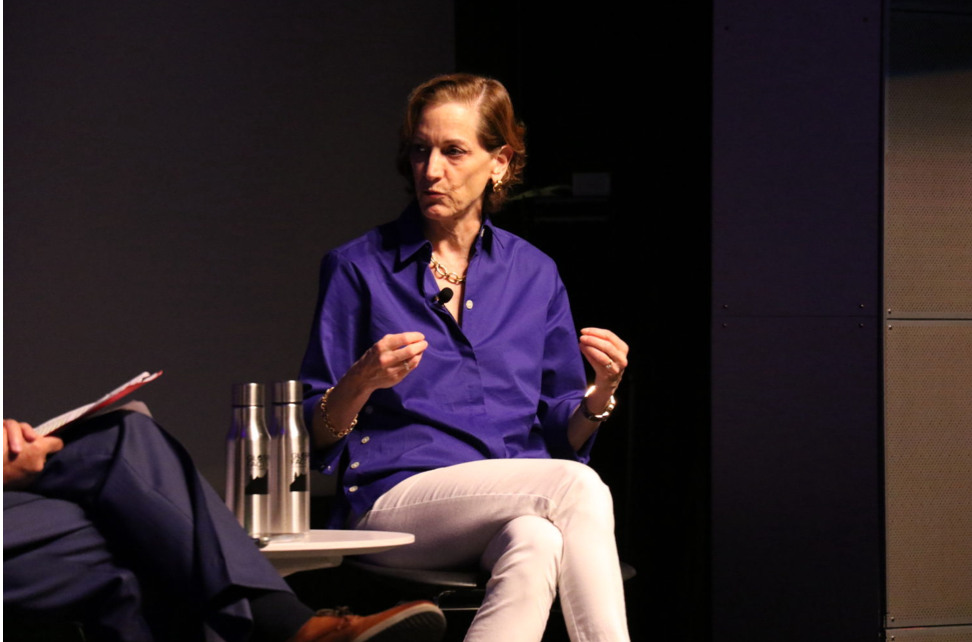
Fact-checkers don’t like to talk about themselves. They pride themselves on staying out of the limelight and reporting the truth about readers’ communities. But this week at GlobalFact 9, the annual conference held by the International Fact-Checking Network, the attention is in an unfamiliar spot: on the journalists — and their relationship to democracy.
In a keynote session, Poynter Institute president Neil Brown sat down with Anne Applebaum, a Pulitzer Prize-winning historian and journalist who has written for The Atlantic and The Washington Post, to discuss how fact-checking can and should respond to disinformation.
Applebaum, an expert on authoritarianism in eastern Europe, first addressed the headlines of Ukraine and Russia.
“What we’re dealing with now is not something that’s a government telling a lie,” Applebaum said, but “a government that’s created a whole elaborate narrative” that’s been planted, controlled, and organized in advance. A single fact check can’t hold up against floods of disinformation from the Russian government, especially given how it targets audiences both domestically and internationally, she said.
And the goal of the narrative is clear, Applebaum said: “to weaken support for Ukraine.” If Russia’s disinformation campaign is successful, Ukraine won’t get the military, financial and political support it needs from other countries or organizations like the United Nations.
But Ukraine hasn’t capitulated on the war for land — or the war for a better story. “Ukrainians think a lot about how to contrast their authenticity with the contrived fake world of (Russian President Vladimir) Putin’s propaganda,” Applebaum said. On one of the first days of the war, Ukrainian President Volodymyr Zelenskyy created a smartphone video showing himself, the prime minister and his chief of staff. Zelenskyy also swaps formal attire for T-shirts and zip-up hoodies, and he rejects the Ukrainian tradition of having people wait in the hallway to see him. These signals of normalcy are “part of why he’s been successful at countering these false narratives about him and about the country,” Applebaum said.
Fact-checkers may be able to learn from Zelenskyy’s strategy by using powerful narratives that can help them tell the truth, Applebaum said. “A fact isolated from context, whether it’s true or false, is almost meaningless. You have to explain it or tell it as part of a story.”
Still, for journalists, there can be risks to more emotional material. Applebaum talked about a project she did with journalist Peter Pomerantsev at the London School of Economics with the Italian newspaper Corriere della Sera, where they measured how readers responded to different stories about refugees. They published one that followed the emotional journey of a single refugee, thinking it would garner a more positive response than a wire piece filled with statistics and factual solutions. They turned out to be wrong. Respondents felt that they were being emotionally manipulated and preferred the drier syndicate article.
The experiment’s contrast between relatability and factuality was one of many tensions that Applebaum pointed out in modern journalism. In this world of misinformation, there’s also a potential tradeoff between something accessible and something complicated.











